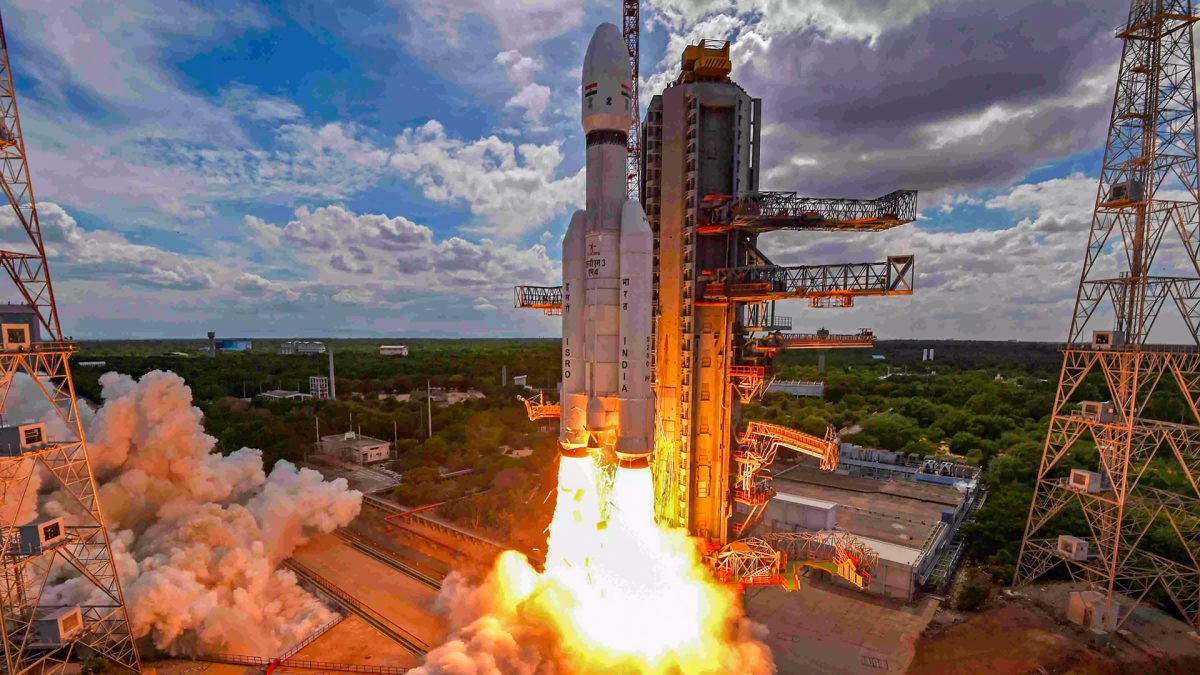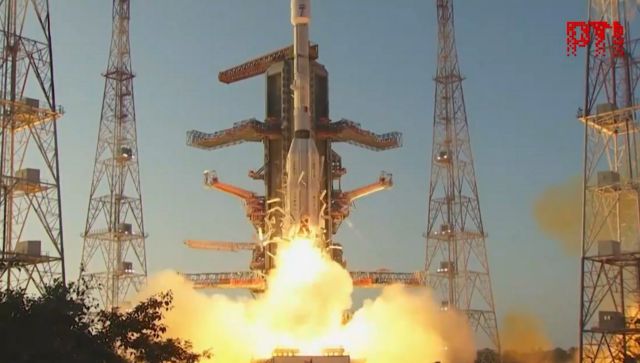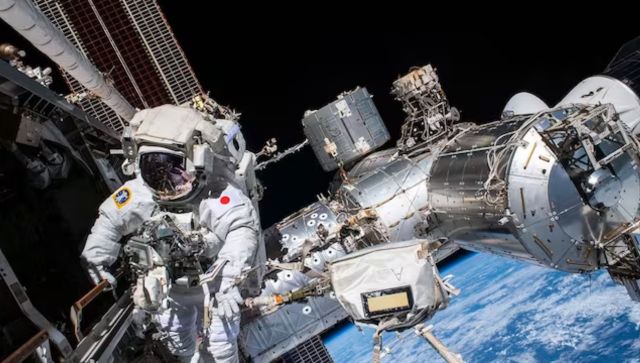By Dinesh C Sharma
Doves are symbols of peace and friendship. They are often set free to mark important and ceremonial occasions. But when India’s space agency released a sizeable flock of ‘Doves’ at an altitude of 524 kilometers on Wednesday morning, it sent a message of quiet aggression and technological prowess to the world community.
As many as 88 of the 104 satellites that the Polar Satellite Launch Vehicle (PSLV) placed into their respective orbits are dubbed Doves and belong to a space startup, Planet Inc, based in California, USA. These Doves will fly in a constellation and cover the earth round the clock. Another 8 satellites called LEMUR are owned by yet another American firm, Spire. The rest came from Israel, Kazakhstan, the Netherlands, Switzerland, United Arab Emirates (UAE). The main cargo of the mission was Isro’s 714-kg Cartosat-2 series satellite for earth observation. The rocket also carries two nano satellites of Isro - INS-1A and INS-1B- as co-passengers.
First, the record. The magic figure of 104 lent itself very well for cricket analogies. When the commentator from the control room at Sriharikota conveyed the excitement of the mission success at 9.59AM, he almost sounded like a cricket commentator. “Vishwa kirteeman, Bharat ke name” (world record in India’s name) he declared soon after confirmation came about successful separation of all the 104 satellites. The cricket simile continued in the remarks of normally reticent Isro scientists soon after the mission success. “104, Not Out” said Dr P V Venkita Krishna, director of Isro Propulsion Complex Mahendragiri.
This is the largest number of satellites to be deployed by any rocket in the past. The previous high was 37 satellites launched by Russia and 29 by America in one go in 2014. India’s highest was 20 launched by PSLV-C34 mission in June 2016.
Still the 39th flight of the Polar Satellite Launch Vehicle – designated as PSLV-C37 – is significant not just for the record number of satellites – 104 – it propelled into space but on several other counts.
Launching multiple satellites in multiple orbits on a single mission is a tough task for any space agency. Given complexity and risks involved, today’s was one of the most technologically challenging missions for Isro though the agency has had 37 consecutive successful launches of its workhorse rocket. It has been working on multiple-satellite launches for the past one decade and had gained enough confidence to take the leap to century plus. The first multiple satellite launch on-board PSLV carried three satellites, then it was 10 satellites in 2008, and finally 20 satellites in one go in June 2016. This gradual development also helped Isro to gain necessary experience and also confidence of its international customers. For instance, Planet Inc which gave the contract for launching its 88 Doves in today’s mission is a repeat customer of Isro. The last multiple-satellite mission of PSLV had carried 12 satellites of Planet Inc in 2016.
Several new technologies have gone into PSLV mission for the multiple-satellite launch to for precise orbital determination and injection, wedge locking systems, complex maneuvering and super-precise ignition of its different stages. In PSLV-C37 launch of today, new design engineering and technologies were deployed to keep the last stage of rocket alive for extended period for ejection of dozens of satellites in ten different orbits. Isro’s own navigation system NavIC was used for orbital determination.
The second important facet of Wednesday’s launch is its commercial significance. Isro has been engaged in commercial launches for the past 15 years, but this was the largest so far in terms of number of satellites deployed. Imagine one customer entrusting Isro with launch of its 88 satellites. With these satellites, Planet Inc has got a flock of 143 nano satellites in orbits to cover the earth like never before. This launch was critical for Planet Inc and its business.
Isro’s launch business is not limited to satellites being launched under bilateral agreements or for research agencies from other countries. Now it is into launches which are critical for its commercial customers which are private companies. The success of PSLV-C37 makes Isro a formidable player in space industry segment dealing with nano satellites and small satellites. Big space agencies like Araianspace are engaged with mega launches. After the delays and failure of private space missions such as SpaceX and Falcon, there is a death of launchers for small satellites. It is important to remember that both Planet Inc and Spire had used the cargo launches going to the International Space Station (ISS) for deployment of their previous lots of satellites. To take advantage of the changing dynamics of commercial space launch market, ISRO will have to further consolidate its position in this segment given the fact that it has a reliable rocket and other players in this segment are just coming up.
The third significant take-away of today’s launch are its geopolitical and strategic signals. The mission was truly international, carrying satellites from America, Europe, Central Asia and the Gulf. There could not be a better advertisement for Isro and its commercial arm, Antrix. An Indian rocket carrying dozens of satellites for American customers would have been impossible to conceive two decades ago. Forget doing business with it, America had Isro on its so-called black list. Even now it is not easy for American entities to have their satellites launched from India. America wants to protect its rocket companies and grants selective waivers for launches from other countries. In this sense, the PSLV launch has broken fresh geopolitical ground. Another clear message to the global community is that Isro with its sound technological prowess means business and is not there to score power points like China.
This story is a part of a series on the world record launch of 104 satellites on a single mission by Isro. The stories in the series are:
- Isro aims for a World record, to launch 83 satellites on a single rocket
- ISRO to launch world record 100 satellites in the PSLV-C37 mission scheduled for February
- Launching 103 satellites is not about setting a record, but to maximise capability, says ISRO chief
- Isro adds another passenger to the PSLV-C37 mission, 104 satellite launch rescheduled to mid February
- Isro plans to involve Indian industries to increase satellite launch capacity
- Isro’s mid-February PSLV-C37 launch of 104 satellites to have 88 satellites from Planet Labs
- Isro chief AS Kiran Kumar outlines the various uses of Indian satellites to students
- Isro’s PSLV-C37 launch scheduled for 15 February at 9:00 AM, here are the confirmed details
- Isro is going to break these previous satellite launch records with the PSLV-C37 mission
- Isro to recover half the cost of record breaking PSLV-C37 launch from foreign customers
- Isro PSLV-C37 record breaking mission run up: A history of rockets and launch vehicles in India
- Isro PSLV-C37 mission: The US private sector is threatened by cheap Indian spaceflight
- Isro has plans to go to Venus and visit Mars again in the future, along with 104 satellites launch on 15 Feb
- Isro’s record breaking PSLV-C37 mission: These are the 104 satellites on board
- Isro PSLV-C37 launch: How Antrix compares to other satellite launch services
- Isro’s launch of the PSLV-C37 mission with 104 satellites is subsidised by the Government
- Isro’s record breaking PSLV-C37 mission: Here is how to follow the launch as it happens
- Isro releases curtain raiser and satellite integration videos ahead of the PSLV-C37 launch
- ISRO PSLV-C37 mission LIVE: All 104 satellites successfully deployed in world record launch
- Isro successfully launched 104 satellites on the PSLV-C37 mission and the praise is pouring in
- Isro’s PSLV-C37 mission started 2017 with a bang, here is what to look forward to in the year ahead
- ISRO: 104, not out; The record, the technologies, the commercial significance and more


)




)
)
)
)
)
)
)
)